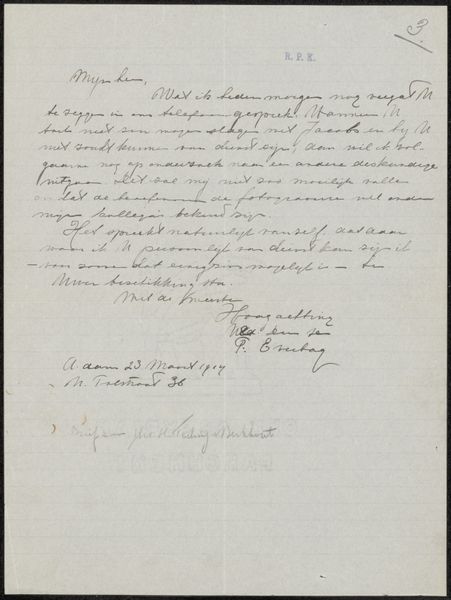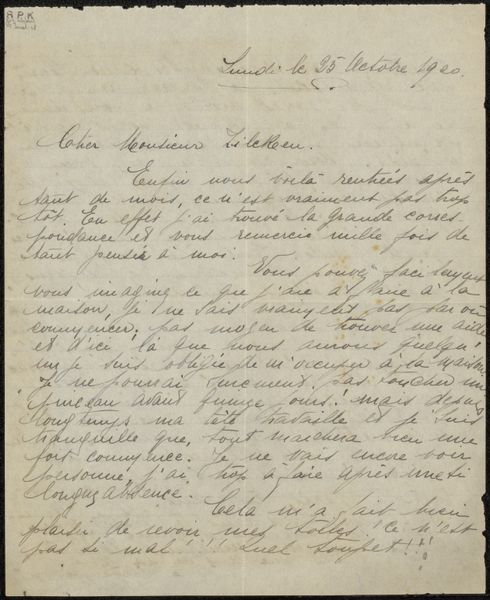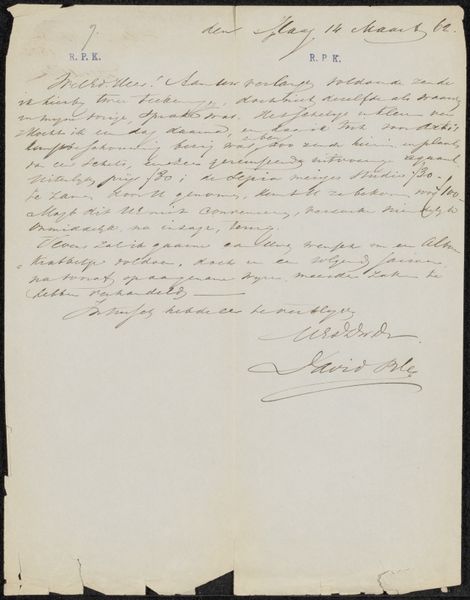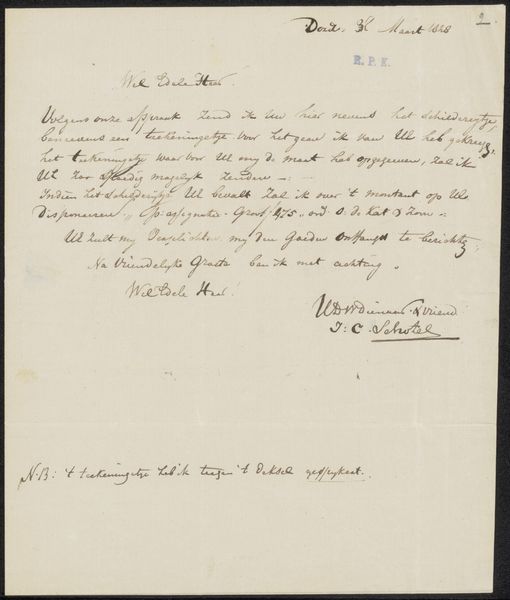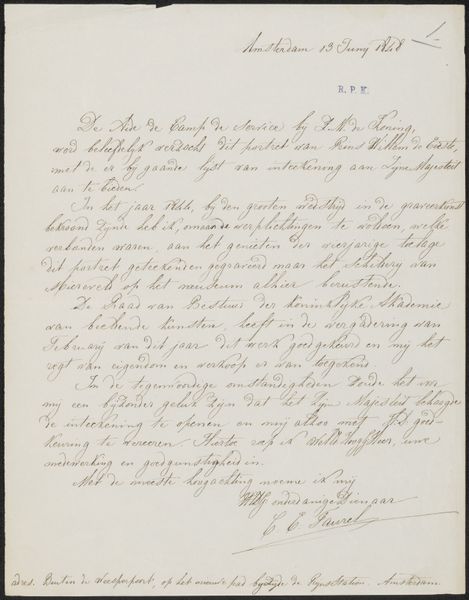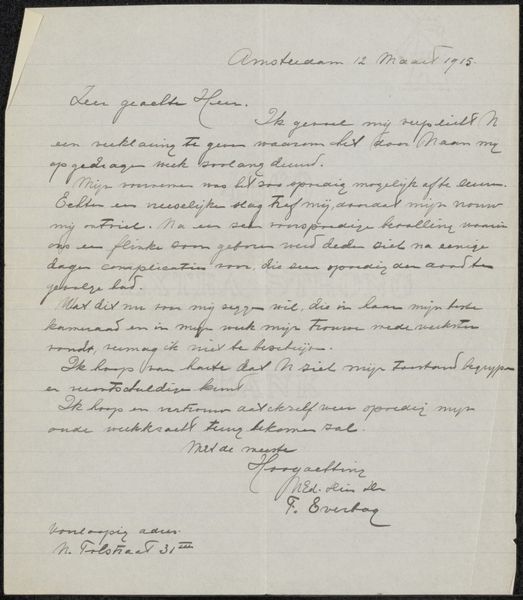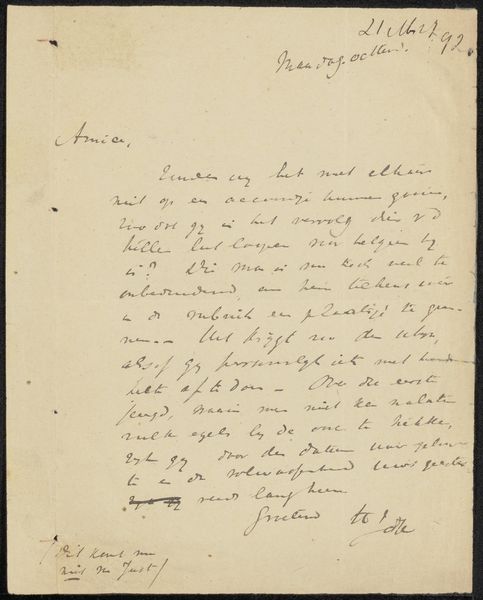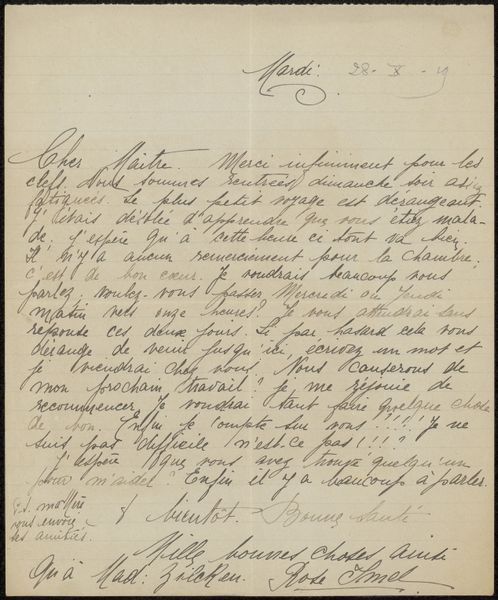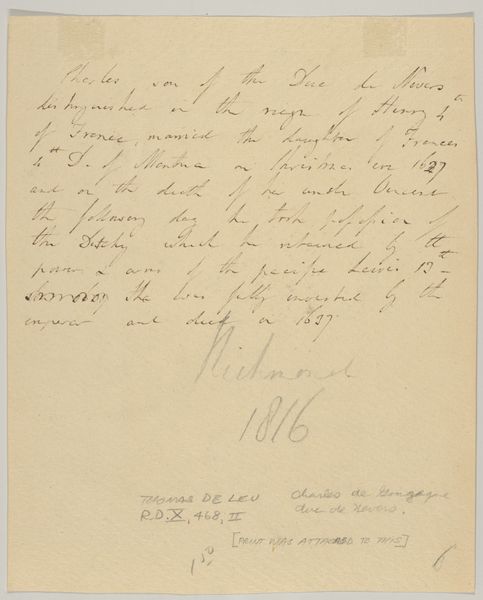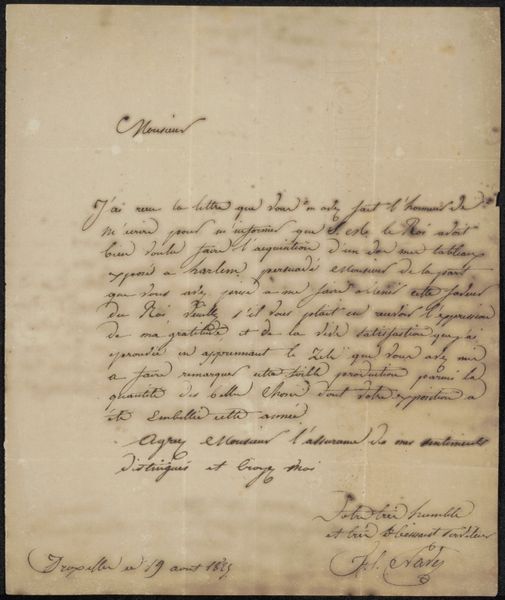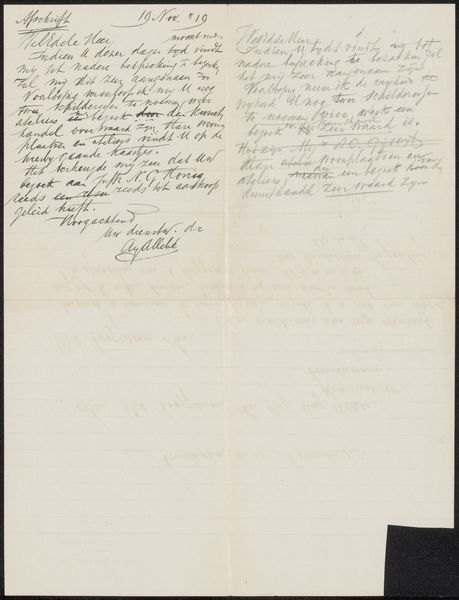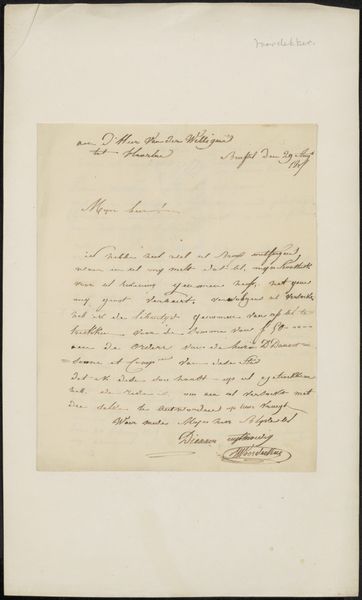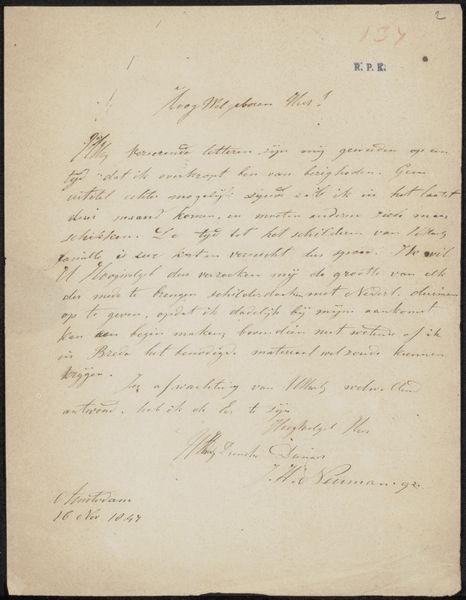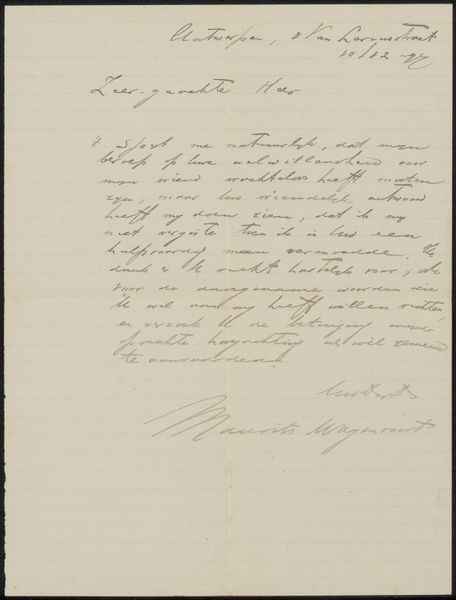
Brief aan mevrouw de weduwe Adriaan Pietersz. Loosjes Possibly 1820 - 1828
0:00
0:00
pietervandermeulen
Rijksmuseum
drawing, paper, ink
#
portrait
#
drawing
#
paper
#
text
#
ink
#
romanticism
Copyright: Rijks Museum: Open Domain
Editor: This is "Brief aan mevrouw de weduwe Adriaan Pietersz. Loosjes," attributed to Pieter van der Meulen and thought to have been created sometime between 1820 and 1828. It's an ink drawing on paper currently held at the Rijksmuseum. What strikes me most is the formality of it. How do you interpret this work, considering its historical context? Curator: Well, seeing this letter as an "activist," I consider its role in maintaining social structures. In the early 19th century, letter writing wasn't just about conveying information, it was a carefully constructed performance. It served to reify relationships, but also revealed them, especially those bound by unequal power dynamics such as class, gender and the complicated bonds forged through kinship networks, particularly as articulated through widowhood. Note the elaborate script and formal address - wouldn't you agree that such elements demonstrate a calculated effort to express not just sentiment, but a specific social positioning? Editor: That’s a good point! The handwriting feels so deliberate and stylized. Does the specific phrasing also give clues about these social dynamics? Curator: Precisely. The language likely employs conventions and forms common to its time but also could be referencing very precise historical or family relationships we may no longer have clear access to. How do you think the romanticism movement impacted letter-writing conventions of the time? Were the authors writing what they were really feeling, or fulfilling expectations of the genre? Editor: That’s something to think about. I had focused on the personal aspect, but understanding it as a social performance changes my perspective. Curator: Indeed! Analyzing its social role helps to understand how seemingly personal communication contributes to broader systems of power and expectations. Letters may seem quaint, but in fact preserve dynamic webs of social action and obligation. Editor: Thank you; viewing this letter as a carefully constructed performance rather than a transparent window into the past gives me a new avenue for future studies.
Comments
No comments
Be the first to comment and join the conversation on the ultimate creative platform.
